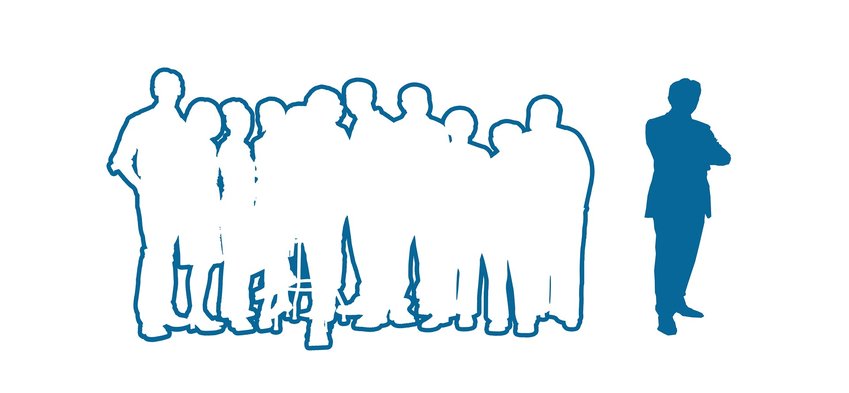MSP Community Blog
The ASCII Blog highlights articles featuring MSP members from our community as well as ASCII staff

ASCII Insight: MSPs Share Their Thoughts On Modernizing
In our ongoing quest to provide you with the best business advice possible, we’ve partnered with The ASCII Group and their members who are going to share their thoughts on timely topics or best business practices. In this article, the following ASCII member answered our questions about what to consider when modernizing your shop:
- Carl De Prado, President and CEO, A2Z Business IT
- Joshua Liberman, President of Net Sciences, Inc.
- Christopher Barber, Chief Nerd, Cheaper Than A Geek
- Aleks Hara, Director, Cloud Service Sales, WatServ
- Chad Kempt, Owner, Fast Computers
- Al Alper, CEO, Absolute Logic
Modernization Questions
Q: What technologies should MSPs be investing in to keep up with market changes?
De Prado: There are a few key technologies I feel are essential as we go into 2021, such as single sign-on or SSO for businesses so that they can manage their employee’s logins on their business line applications as well as any other third party application.
Artificial intelligence (AI) /deep learning/ machine learning, knowing how to add value to your clients with these technologies, will be critical in the coming years. AI he’s already starting to make headway into the security field as well as into the knock and help desk. We will see more of this technology being implemented.
Liberman: Securing remote users, of course, and securing Microsoft 365 mailboxes (the new endpoints). And fighting phishing that drives business email compromise, still the #1 vector of efficacious attacks.
Barber: Cybersecurity offerings should be ever evolving, offering our clients the best possible protection.
Alper: Security solutions that address the Sensory Stack (see below) and the Cloud. MSPs need to both educate themselves/their team on both subjects AND include them as part of their suite of services.
Q: What customer demands are driving MSPs to need to modernize their operations?
De Prado: Since we deal in the small business space, it allows us to be nimble enough to focus on remote workers and securing them. So, when the pandemic came to be, we were ready. We had solutions for our clients, from managed VPNs to secure communications for their staff. With employees sent home, I have seen an unprecedented demand for Laptops and home firewalls.
Liberman: Customer needs are driving us, not actual demands. We usually know what they need before they do. Which is a long way of saying, education of our clients so that they will demand better protection.
Barber: Cyber threats and increasing operational efficiency are key drivers for our clients making investments in IT.
Hara: The customer demand we are seeing is (not surprisingly) Remote Work and how to secure it, lower costs, and improve collaboration among the remote users. Because of the financial impacts that the pandemic has had, many customers want a funded assessment at the start so they have a clear idea of what will be involved and how much they can afford to tackle. At WatServ we try to offer no-cost assessments for Secure Workspaces where we can and where the business case makes sense. We also put together a one-day solution where we can “jump-start” a client’s M365/Teams project and put them on the right path to quick adoption.
Kempt: The biggest demand is decentralization which has been accelerated by the pandemic. Securing the permitter is not very useful when all endpoints exist outside of it; additional challenges around eliminating traditional on-premise infrastructure is forcing MSP’s to adapt and find modern solutions to modern problems.
Alper: WFH is the new normal and the security envelope needed to mitigate risk is poorly understood. This demands MSP step up their game and pivot to address this gap.
Q: What systems do MSPs need to have in place to pivot quickly when the next wave(s) of change come?
De Prado: A password management system not only for in-house but to offer to their clients. Two-factor authentication as well as working closely with Microsoft 365/ Azure & Teams. 2020 was the year, in my opinion, for Microsoft Teams have wide acceptance in the small business communities.
Liberman: Offerings that are modular enough to allow you to both add services and monetize them are the biggest issue. Each year we add new services without charge and every other year, we charge more.
Alper: A fully vetted security stack that includes a Sensory Stack solution that addresses a company’s culture of security. The Sensory Stack is that part of the Security Stack that the company’s leadership and its’ employees interact with. Unless and until the culture of the company is measured and unveiled, then addressed and monitored you can’t secure a company; full stop.
A company that doesn’t take security seriously will never invest in being secure – they will merely “check the boxes”. Frederic Lemieux, faculty director of Georgetown University’s graduate programs in Applied Intelligence and Cybersecurity Risk Management calls this “passive complicity.”
In our MSP (Absolute Logic) our BRR’s (Business Risk Reviews) are theme-based around a culture of security; and we use our tools from our channel company (CyberGuard360) and others to expose the measure of the company’s security cultural posture.
A platform that helps you expose, measure, mitigate, and monitor culture is much more powerful a security tool than the best next-gen AV, perimeter appliance, etc. money can buy.
Q: What role will cloud play in allowing MSPs to modernize?
De Prado: As I said in the last question, Microsoft Teams, it’s just one of the significant disruptors that are changing the modern office environment. Now small businesses don’t need to have an on Prem domain controller since Office 365.
Liberman: For those of us with “cloud shy” clientele, this was and will be the catalyst to finally get their attention. In some cases, cloud-hosted resources are the only reason that some of our clients are still running.
Barber: Security. There has never been a greater need to fortify cloud security and redundancy.
Kempt: The need for on-site staff in a centralized location is changing for MSP’s as well. This broadens staffing and other business options for growth.
Alper: With companies like Nerdio and others making the move to the cloud much more seamless, this should have a significant impact on the MSP community and their offerings. The advent of WVD makes the UX of cloud 2nd nature and, therefore the MSPs offerings will now include a VDI/WDI footprint. Juxtapose that with WFH being the new normal and cloud is and will continue to take off.
Q: What effect will automation have on the managed services industry?
De Prado: Since making my living in IT, I have thought it’s only a matter of time before automating me out of a job. That is not proven to be the case. Technical support is not going away anytime soon. But as always, the type of support will change. The days of doing system upgrades and adding ram to a laptop have long gone. Now the challenge even to do a hard drive upgrade. But as that business is declined, new markets have opened manage services, cloud services, and security services. If we’re dealing with people, there will need to be humans on both sides of the equation.
Liberman: AI is already in use by the “bad guys”, so we are playing catch up with AI-driven security tools. Log analysis and response services, antispam and antiphishing and most other “anti-matters” tools will all benefit.
Barber: Automation internally in the MSP allows for greater efficiency and, done properly- allows our offerings to be more robust and valuable. Automation for our clients means an increased need for competent, secure IT. That’s where the best MSP’s shine!
Alper: Except for vendors like us (CyberGuard360) or Kaseya, who mandates 20% of each business unit’s R&D go into vertical integration and automation, most vendors are siloed, pushing product. From a client perspective, niche markets will see an impact but they are a small segment of the overall marketplace.
Q: What does an MSP need to know about IoT and Blockchain, and is 2021 the year these two technologies finally arrive?
De Prado: IoT is already here. With employees working from home either part-time or full time, managing more nontraditional technology will be required. I have not done anything with Blockchain, but now that you’ve asked me that question, I think I’m going to have to spend some time looking at Blockchain for 2021.
Liberman: IoT (the Internet of Threats) is already a clear and present danger; and so far, the blockchain is known mostly as Bitcoin’s whose biggest impact has been to pay ransom demands. But the latent power of the distributed ledger may well start to flower in 2021.
Barber: IoT is all about monitoring. What are these devices doing, and do we have a level of control in place to see? Patterns must be analyzed, or it’s the Wild West letting IoT run unmonitored!
Alper: Blockchain will continue to be big, but niche – not something most MSP will deal with. IoT, on the other hand, should “arrive” but there is still little to no uniformity in the space. MSPs who include IoT security and management services should see incremental growth but will require that they educate the consumer of their services as to the “why”. The problem here is that:
- They, themselves need to understand the risks associated with IoT (some/many/most don’t)
- They need to translate it into Business Risk, in a digestible format for CEOs

